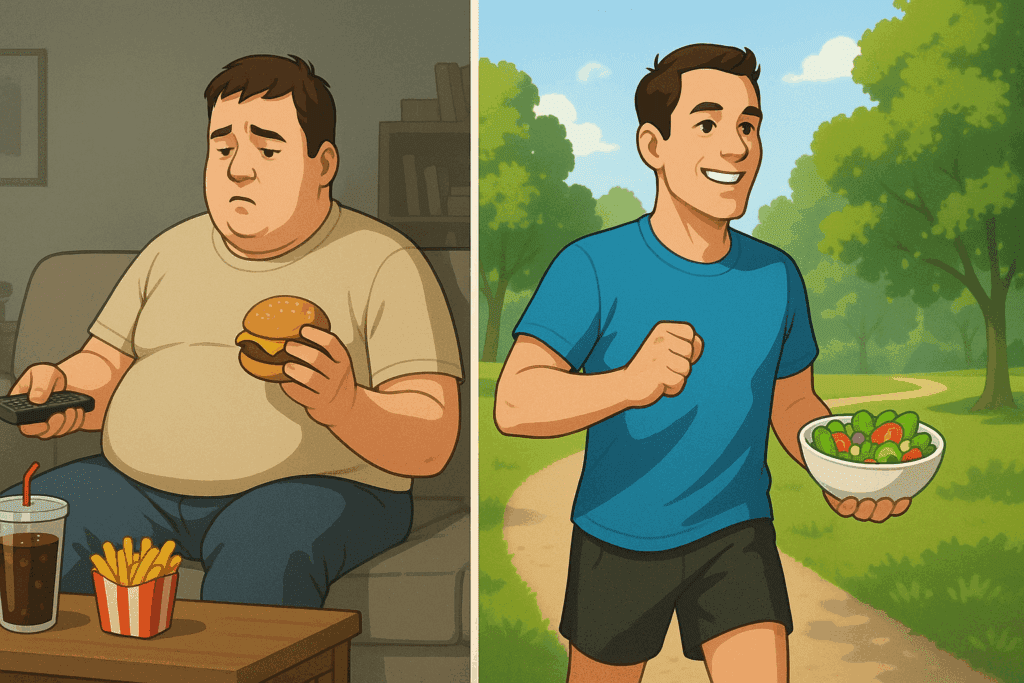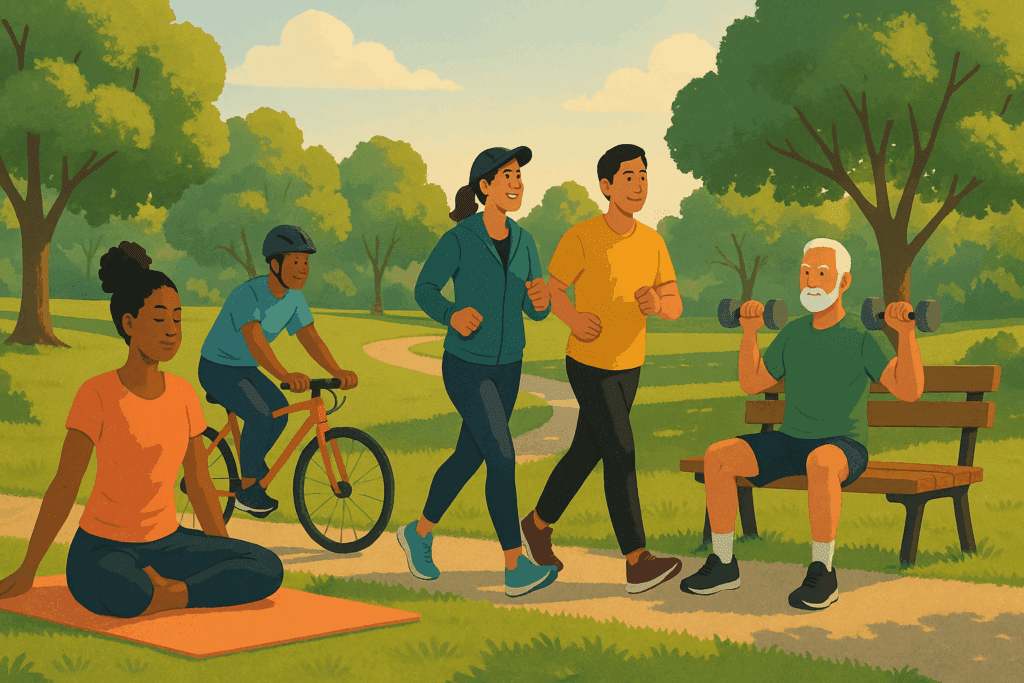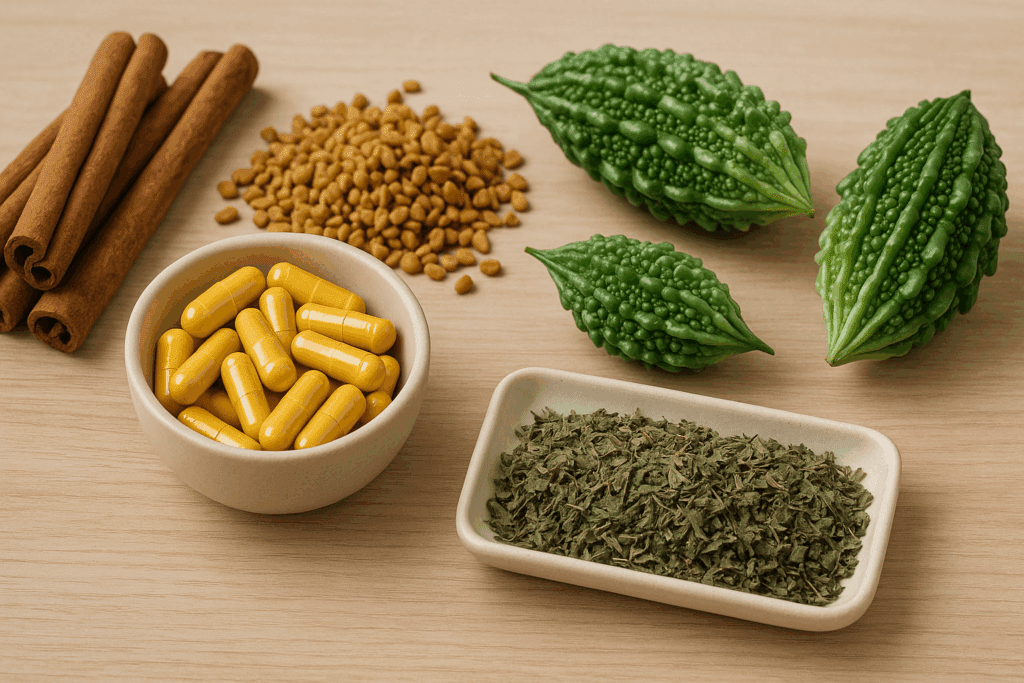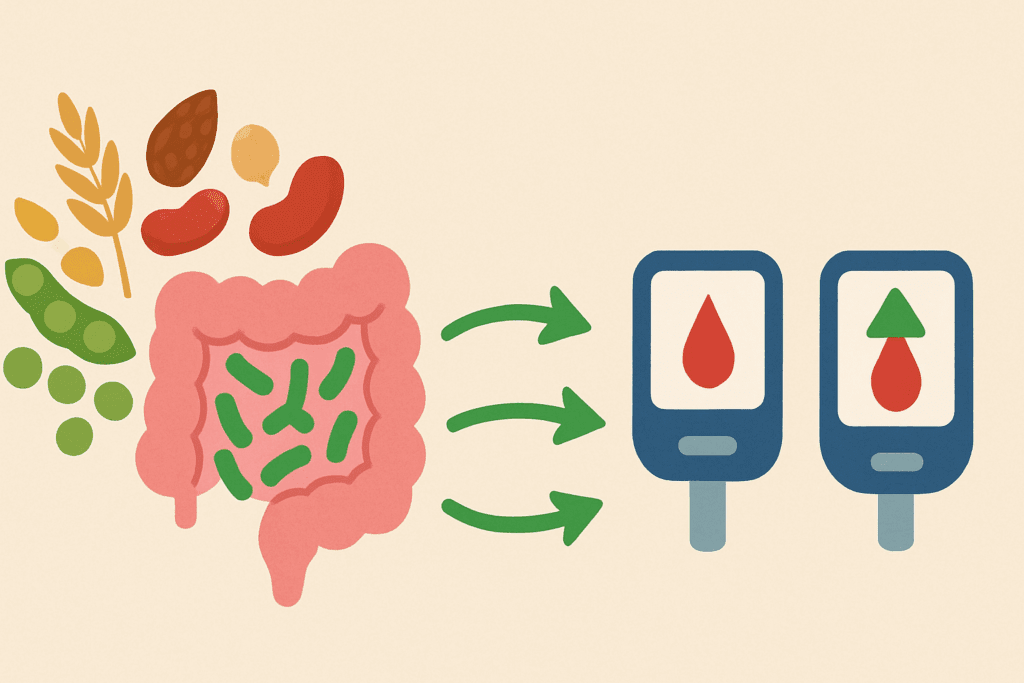Understanding the Landscape of Type 2 Diabetes Management
Type 2 diabetes is a complex, chronic condition affecting millions of individuals worldwide. Its hallmark characteristic is insulin resistance, in which the body’s cells fail to respond properly to insulin, leading to elevated blood glucose levels. Traditionally, the standard approach to controlling blood sugar levels has involved pharmaceutical interventions such as metformin, sulfonylureas, and insulin therapy. However, an emerging body of research is now exploring the effectiveness of managing diabetes without drugs, with a growing emphasis on natural methods that support long-term glycemic control.
You may also like: Breakthroughs in Current Diabetes Research: What the Latest Studies Reveal About Treatment and Prevention
The appeal of diabetes treatment without drugs lies in the desire to reduce medication side effects, lower dependency on pharmaceuticals, and address the root causes of the disease rather than merely its symptoms. These natural approaches focus on sustainable lifestyle interventions, dietary adjustments, stress management, and targeted physical activity. In this article, we’ll explore the latest scientific findings that support managing diabetes without medicine, examine the evidence behind natural therapies, and provide expert-level insights for individuals seeking holistic methods to maintain controlled diabetes.

Lifestyle Modifications Backed by Science
One of the most significant areas of research in diabetes care centers around lifestyle modification. Evidence has consistently demonstrated that people can achieve diabetes control without medicine by committing to targeted changes in daily routines. The Diabetes Prevention Program (DPP), a large clinical trial sponsored by the National Institutes of Health, revealed that lifestyle changes were more effective than metformin in reducing the risk of developing type 2 diabetes in high-risk individuals.
This pivotal study underscored the potential of non-pharmacologic strategies, including modest weight loss, increased physical activity, and dietary changes, in controlling diabetes without meds. Participants who lost just 5 to 7 percent of their body weight and engaged in 150 minutes of physical activity per week showed dramatic improvements in insulin sensitivity and blood glucose regulation. These findings have since been replicated across various populations and have inspired healthcare providers to recommend natural ways to treat type 2 diabetes as a first-line defense.
Furthermore, structured behavioral interventions have proven instrumental in reinforcing these changes. Programs like Diabetes Self-Management Education and Support (DSMES) provide patients with tools and knowledge to make informed decisions about nutrition, exercise, and glucose monitoring, reinforcing the long-term benefits of managing diabetes without drugs.

Nutritional Approaches to Natural Glycemic Control
Nutrition is perhaps the most powerful lever in the pursuit of a diabetes treatment without drugs. The foods we consume have an immediate and profound impact on insulin function and blood sugar levels. A mounting body of evidence suggests that dietary strategies rooted in whole, minimally processed foods can dramatically improve glycemic control.
Plant-based diets, for example, have been shown to reduce HbA1c levels, improve insulin sensitivity, and even reverse diabetes markers in some individuals. These diets prioritize vegetables, legumes, whole grains, nuts, and seeds while minimizing saturated fats and refined carbohydrates. One clinical trial published in the journal Nutrients found that individuals following a low-fat vegan diet experienced significantly lower fasting blood glucose levels and required less medication over time.
Another promising area of research involves the Mediterranean diet, which emphasizes fruits, vegetables, olive oil, lean protein, and moderate wine consumption. Studies have shown this pattern to be effective in reducing systemic inflammation and improving cardiovascular outcomes in patients with type 2 diabetes. For individuals seeking home remedies for type 2 diabetes, embracing a Mediterranean-style eating plan offers a delicious, accessible, and scientifically validated option.
Timing also plays a critical role in dietary strategies. Intermittent fasting and time-restricted eating have gained traction in recent years as methods to lower blood glucose levels naturally. These approaches allow the pancreas to rest and reduce insulin resistance by extending the body’s fasting window. Research indicates that intermittent fasting can reduce body weight and improve metabolic markers associated with controlled diabetes, especially when combined with nutrient-dense meals during eating windows.

Physical Activity as a Natural Insulin Sensitizer
Exercise is often described as a “natural insulin” due to its ability to lower blood glucose levels both during and after activity. Engaging in regular physical movement helps transport glucose from the bloodstream into muscle cells, thereby reducing insulin resistance. As such, exercise remains one of the cornerstones of managing diabetes without medicine.
Aerobic activities like walking, cycling, and swimming have been widely studied for their positive effects on insulin sensitivity. According to the American Diabetes Association, just 30 minutes of brisk walking per day can significantly improve glycemic control and reduce the need for medication. Resistance training, too, plays an important role, as it enhances muscle mass and boosts glucose uptake in skeletal tissues.
New research is also shedding light on the impact of short, frequent bouts of activity—referred to as “exercise snacks”—in lowering postprandial glucose spikes. This strategy involves light physical activity such as stair climbing, stretching, or standing after meals, which helps manage blood sugar in a practical, accessible way. These findings support the idea that diabetes control without medicine is not only possible but can be seamlessly integrated into everyday life.
Importantly, exercise also reduces visceral fat, which is closely linked to insulin resistance and systemic inflammation. As the body’s composition improves through movement, so too does its ability to regulate blood glucose levels, offering a sustainable remedy for sugar diabetes that enhances overall health.

Stress Reduction and Sleep Quality in Diabetes Management
While diet and exercise often dominate discussions about natural diabetes control, the roles of psychological stress and sleep quality are equally vital. Chronic stress triggers the release of cortisol, a hormone that increases blood glucose levels and contributes to insulin resistance. Left unchecked, this physiological response can sabotage efforts at controlling diabetes without meds.
Mindfulness-based stress reduction (MBSR) programs, which incorporate meditation, deep breathing, and body awareness techniques, have shown promise in lowering HbA1c levels and improving emotional well-being in people with diabetes. These practices help reduce sympathetic nervous system activity, allowing the body to shift into a parasympathetic, healing state that supports metabolic balance.
Sleep, too, plays an essential role in managing diabetes without drugs. Studies have shown that individuals with disrupted sleep patterns are more likely to develop type 2 diabetes and have poorer glycemic control. Ensuring a minimum of seven hours of high-quality sleep per night can improve insulin sensitivity and support hormonal regulation, both of which are essential for maintaining controlled diabetes.
Moreover, emerging evidence suggests that interventions aimed at improving circadian rhythm—such as avoiding late-night meals, reducing screen time before bed, and maintaining a consistent sleep-wake schedule—can enhance the effectiveness of natural ways to treat type 2 diabetes. When the body’s internal clock is aligned with metabolic demands, glucose metabolism becomes more efficient.

Botanical and Nutritional Supplements with Emerging Evidence
Interest in herbal and nutritional supplements as a form of diabetes treatment without drugs has grown significantly in recent years. Several botanicals have demonstrated blood sugar-lowering effects in clinical trials, although more robust research is needed to confirm long-term efficacy and safety.
Cinnamon, for example, has been shown in several studies to improve fasting blood glucose and lipid profiles. Its active compounds are believed to enhance insulin signaling pathways and reduce oxidative stress. Similarly, berberine, an alkaloid found in plants such as barberry and goldenseal, has shown metformin-like effects in lowering blood glucose levels and improving insulin sensitivity.
Other promising candidates include fenugreek seeds, bitter melon, and gymnema sylvestre—all of which have been used in traditional medicine as home remedies for type 2 diabetes. While these natural treatments can complement lifestyle modifications, it is crucial to approach them with caution and consult a healthcare provider before use, especially when combining with prescribed medications.
Supplements like chromium, magnesium, and alpha-lipoic acid also play a supportive role in managing diabetes without drugs. These nutrients are involved in glucose metabolism and mitochondrial function and may correct subtle deficiencies that exacerbate insulin resistance. Their inclusion in a well-rounded nutritional plan may enhance the body’s natural ability to maintain glycemic balance.

Microbiome Health and Its Role in Blood Sugar Regulation
Recent advances in microbiome science have highlighted the intricate relationship between gut bacteria and metabolic health. The gut microbiota, consisting of trillions of microorganisms, plays a pivotal role in immune regulation, nutrient absorption, and glucose metabolism. Imbalances in gut flora—known as dysbiosis—have been linked to inflammation, insulin resistance, and the onset of type 2 diabetes.
Interventions that restore microbial diversity, such as consuming high-fiber diets rich in prebiotics and fermented foods, have shown potential in promoting diabetes control without medicine. Fiber, especially soluble types found in oats, legumes, and flaxseeds, acts as fuel for beneficial gut bacteria, leading to the production of short-chain fatty acids (SCFAs). These compounds have anti-inflammatory properties and improve insulin sensitivity.
Probiotic supplementation is another area of growing interest. Some studies have demonstrated that specific strains of Lactobacillus and Bifidobacterium can reduce blood glucose levels and systemic inflammation. While this research is still in its early stages, it adds an important dimension to the holistic model of managing diabetes without medicine, where gut health is not merely a side concern but a central therapeutic target.
Importantly, addressing the microbiome through natural dietary interventions can offer a remedy for sugar diabetes that is sustainable, affordable, and rooted in everyday food choices. It also reinforces the idea that the body possesses an innate capacity for healing when supported by the right environment.
Frequently Asked Questions: Natural Approaches to Managing Diabetes Without Medicine
1. Can managing diabetes without medicine be sustainable over the long term?
Yes, managing diabetes without medicine can be sustainable, but it requires ongoing commitment to lifestyle changes and continuous self-monitoring. Long-term success depends on a combination of consistent dietary habits, regular physical activity, stress reduction, and sleep quality. While medical interventions may still be necessary for some individuals, others have achieved controlled diabetes for years using natural methods alone. It’s essential to regularly evaluate your blood glucose levels and adjust strategies as needed, ideally under the supervision of a healthcare professional. For many, controlling diabetes without meds becomes a lifelong practice in preventive health rather than reactive treatment.
2. What role does community and social support play in diabetes control without medicine?
Community and social support are often underappreciated yet powerful tools in achieving and maintaining diabetes control without medicine. Studies have shown that individuals who participate in support groups or diabetes education programs are more likely to stay committed to dietary and fitness goals. Engaging in shared activities, such as group walking programs or healthy cooking classes, creates accountability and emotional encouragement. Emotional stress can negatively impact blood sugar, so surrounding oneself with positive, understanding individuals can reduce those spikes. Social connection becomes a subtle but effective remedy for sugar diabetes by reinforcing healthy habits through shared experience.
3. Are there natural ways to treat type 2 diabetes that adapt to different cultural dietary traditions?
Absolutely. One of the strengths of natural ways to treat type 2 diabetes is their adaptability to diverse cuisines and cultural food traditions. Whether it’s Mediterranean, Asian, Latin American, or African diets, most cultural cuisines include whole grains, legumes, vegetables, and plant-based proteins that support stable blood sugar levels. For example, traditional Indian cuisine features spices like turmeric and fenugreek, which may support glycemic control. By embracing cultural foods prepared in healthier ways, individuals can sustain their identity and heritage while managing diabetes without drugs. This adaptability also reduces the psychological burden of restrictive Westernized “health” diets that may feel unfamiliar or unsatisfying.
4. How can someone transition from medication to a diabetes treatment without drugs safely?
Transitioning to a diabetes treatment without drugs must be done cautiously and in collaboration with a healthcare provider. Abruptly discontinuing medication without medical supervision can lead to dangerous blood sugar fluctuations. The process typically involves gradually improving diet and exercise patterns while monitoring blood glucose trends to assess readiness for reduced medication. It is also important to address underlying metabolic inflammation and insulin resistance holistically. Over time, and with evidence of controlled diabetes, a physician may support reducing or even eliminating certain prescriptions while continuing close monitoring.
5. What psychological shifts are needed when managing diabetes without drugs?
Managing diabetes without drugs often requires a mental reorientation from a “quick fix” mindset to one that embraces long-term behavioral change. Many people associate health with prescriptions, but adopting natural strategies means internalizing personal agency, consistency, and patience. Cognitive-behavioral approaches can help reframe setbacks and prevent all-or-nothing thinking, which is common when individuals don’t see immediate results. Visualization techniques and mindfulness can help build a strong mental foundation for lifestyle-based healing. Understanding that diabetes control without medicine is a journey rather than a destination makes it easier to accept fluctuations while remaining committed to overall wellness.
6. Are there new technological tools that support controlling diabetes without meds?
Yes, new technology is playing a growing role in supporting those interested in controlling diabetes without meds. Continuous glucose monitors (CGMs), wearable fitness trackers, and AI-powered meal-planning apps help individuals track patterns in real-time and fine-tune their responses to food, exercise, and stress. These tools provide immediate feedback that empowers informed decision-making and reinforces natural interventions. Many platforms also offer coaching features, which guide users toward behavior changes aligned with managing diabetes without medicine. Integrating digital health with lifestyle adjustments brings greater precision and personalization to natural approaches.
7. How do environmental factors affect diabetes control without medicine?
Environmental conditions, such as access to green spaces, availability of whole foods, and even air quality, can influence outcomes in diabetes control without medicine. Urban environments lacking safe outdoor areas can discourage physical activity, while food deserts limit options for fresh produce. Poor air quality may also contribute to systemic inflammation, which is associated with insulin resistance. Advocating for healthier living environments and creating routines that circumvent limitations—such as indoor exercise and growing herbs at home—can support those managing diabetes without drugs. Awareness of one’s surroundings and adapting accordingly becomes part of the broader strategy for long-term success.
8. What role does hormonal balance play in managing diabetes without medicine?
Hormonal imbalances—particularly those involving cortisol, insulin, leptin, and ghrelin—can significantly impact blood sugar regulation. For instance, chronic stress elevates cortisol, which in turn raises blood glucose. Similarly, disrupted sleep affects leptin and ghrelin levels, leading to increased appetite and poor metabolic outcomes. Natural methods that improve sleep hygiene, reduce stress, and promote consistent circadian rhythms support balanced hormone function. By stabilizing hormones, individuals may find it easier to maintain controlled diabetes without pharmaceutical intervention. Thus, endocrine health is a foundational but often overlooked element in holistic blood sugar management.
9. Are there lesser-known home remedies for type 2 diabetes that show promise?
Yes, while many people are familiar with cinnamon or apple cider vinegar, lesser-known home remedies for type 2 diabetes are emerging from both scientific studies and traditional practices. For example, okra water—soaking sliced okra overnight and drinking the water in the morning—has shown potential for stabilizing blood sugar. Mulberry leaf tea and black seed oil are also being explored in research for their hypoglycemic effects. Though these remedies are not substitutes for core lifestyle changes, they may enhance outcomes when used responsibly. Integrating such remedies within a broader framework of managing diabetes without medicine requires attention to dosage, preparation, and overall diet quality.
10. What are the potential future innovations in natural diabetes management?
Future innovations in managing diabetes without medicine are likely to include more personalized nutrition based on genetic and microbiome data. As precision medicine evolves, individuals may receive tailored recommendations that consider their unique biological makeup. Advances in metabolomics could also reveal specific food compounds that optimize insulin sensitivity in each person. Additionally, virtual health coaching powered by AI may offer real-time behavioral guidance rooted in user data. These developments promise to elevate the effectiveness of natural ways to treat type 2 diabetes, creating more adaptive and precise interventions for sustained, drug-free glycemic control.
Conclusion: Embracing Science-Backed, Natural Paths to Controlled Diabetes
As our understanding of diabetes deepens, so too does our appreciation for the body’s ability to heal through natural, holistic interventions. The latest research has made it clear that controlling diabetes without meds is not just a hopeful notion but a scientifically grounded possibility for many individuals. By integrating evidence-based strategies—such as whole-food nutrition, regular physical activity, stress management, and sleep optimization—individuals can achieve diabetes control without medicine and improve their overall quality of life.
These natural approaches offer more than just symptom management; they target the root causes of insulin resistance and metabolic dysfunction. They empower individuals to take an active role in their health and make informed decisions that align with both medical guidance and personal values. Whether through home remedies for type 2 diabetes, innovative microbiome research, or mind-body practices, the path forward is rich with possibility.
Ultimately, managing diabetes without drugs is about cultivating a sustainable lifestyle that respects the complexity of the human body. It’s about embracing science while honoring tradition, and finding balance between modern knowledge and timeless wisdom. As new research continues to unfold, so too will our capacity to offer personalized, natural ways to treat type 2 diabetes that are as effective as they are empowering.
Further Reading:
How to control and manage type 2 diabetes with and without medication
14 Easy Ways to Lower Blood Sugar Levels Naturally
Disclaimer
The information contained in this article is provided for general informational purposes only and is not intended to serve as medical, legal, or professional advice. While MedNewsPedia strives to present accurate, up-to-date, and reliable content, no warranty or guarantee, expressed or implied, is made regarding the completeness, accuracy, or adequacy of the information provided. Readers are strongly advised to seek the guidance of a qualified healthcare provider or other relevant professionals before acting on any information contained in this article. MedNewsPedia, its authors, editors, and contributors expressly disclaim any liability for any damages, losses, or consequences arising directly or indirectly from the use, interpretation, or reliance on any information presented herein. The views and opinions expressed in this article are those of the author(s) and do not necessarily reflect the official policies or positions of MedNewsPedia.


